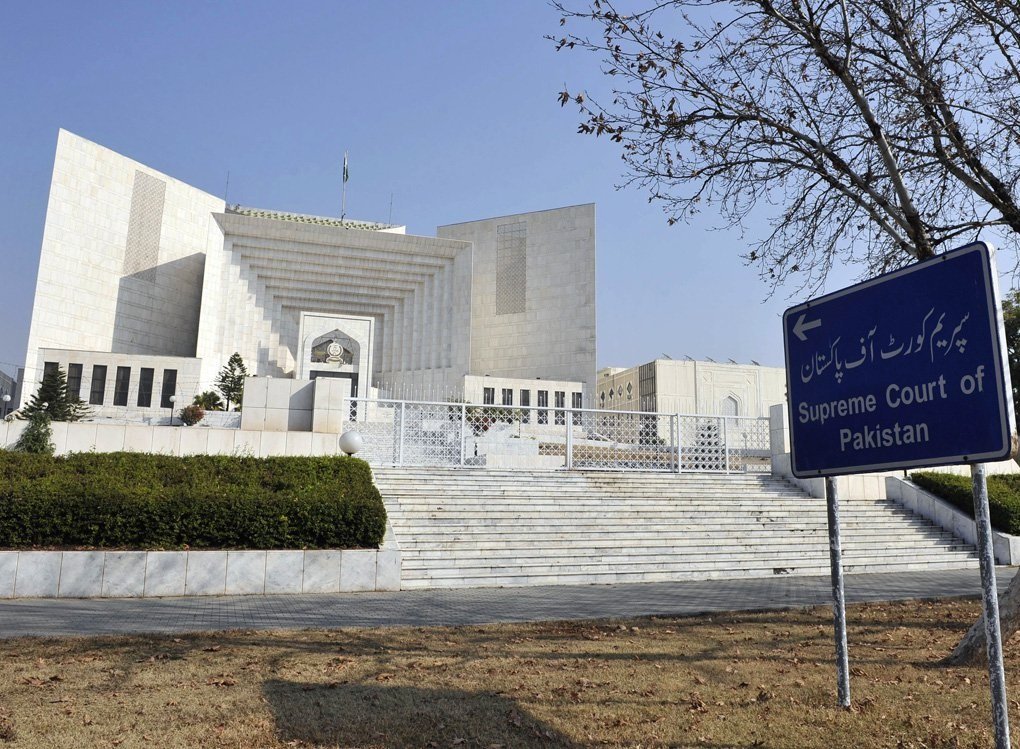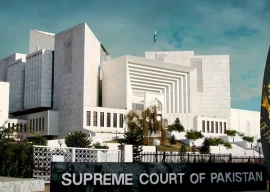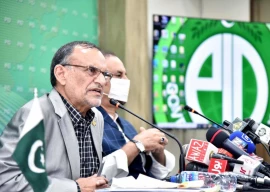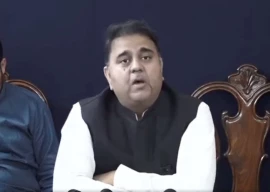
A Supreme Court judge on Wednesday observed that each government changed laws according to their desires and when the PTI would come into power, it could amend the accountability legislation as per its liking.
A three-judge special bench of the apex court, headed by Chief Justice of Pakistan Umar Ata Bandial, resumed its hearing of PTI chairman and deposed premier Imran Khan's plea against the current government’s amendments to the National Accountability Bureau (NAB) law.
Khawaja Haris, the counsel for Imran, informed the court about the UN, EU, and African Union’s anti-corruption conventions.
To this, CJP Bandial noted that what Haris meant was there were certain benchmarks when it came to corruption that needed to be maintained.
The top judge further told the lawyer that he was informed by someone that the UAE was also on the Financial Action Task Force’s (FATF) grey list because of its weak laws to curb money laundering.
The FATF, a global money laundering and terrorism financing watchdog, recently removed Pakistan from a list of countries under “increased monitoring”, also known as the grey list.
The CJP told Haris to discuss the aspect of basic rights in the case.
The lawyer replied that corruption not only affected basic rights, but fair trials and the right to equality too.
Haris further told the court that before the amendments, the NAB chairman had the authority to seek account details from any bank.
Justice Ijazul Ahsan observed that misuse of public funds dented the people’s confidence.
To this, Justice Mansoor Ali Shah noted that the “lawyer’s arguments” would make a good speech in parliament.
Haris told him that nobody in parliament was willing to listen to all this and the treasury lawmakers had their way.
Justice Shah told him that lawmakers needed to be in parliament for the speeches to be heard, indirectly referring to the PTI MNAs' en masse resignations from the National Assembly.
“If you [PTI] win the elections, you can introduce amendments of your own,” he added.
Haris contended that every country in the world was considering harsher laws and punishments for corruption.
The CJP observed that the lawyer probably believed that it would be hard to bring to justice those individuals, who were being exonerated in corruption cases.
Justice Shah remarked that such individuals could be apprehended again.
Addressing the government’s lawyer, the CJP noted that the federal law minister, after the meeting of the Judicial Commission of Pakistan, had told him that the lawmakers did not discuss any other legislation in parliament.
However, its committee had a thorough discussion on the amendments to the accountability law.
The CJP asked the government’s lawyer to provide the details of that discussion, if it took place, to the court.
Haris further told the court that as soon as the Swiss accounts case was closed, its record had gone missing.
He added that similarly, the suspects in NAB cases were able to have themselves exonerated because the anti-graft body was not in possession of the actual documents.
The lawyer argued that if Section 31 (a) of the NAB law that dealt with prohibition to hamper investigation had not been removed, it was not possible for incumbent Finance Minister Ishaq Dar to return to the country.
Justice Ahsan remarked that the nation was affording all of this and pleas for acquittal were being received every day.
Justice Shah noted that if somebody was involved in any wrongdoing, the people would not vote for them.
The judge further inquired that should the court refrain parliament from introducing amendments to a law.
The lawyer replied that the whole system was being paralysed.
Justice Shah told him that the further he presented his arguments, the court would distance itself from this “match”.
The hearing of the case was adjourned till Thursday (today).






1732012115-0/Untitled-design-(14)1732012115-0-270x192.webp)














COMMENTS
Comments are moderated and generally will be posted if they are on-topic and not abusive.
For more information, please see our Comments FAQ